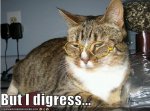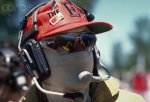You are using an out of date browser. It may not display this or other websites correctly.
You should upgrade or use an alternative browser.
You should upgrade or use an alternative browser.
What frequency?
- Thread starter FFRSpec72
- Start date
Ken Killam
Fats
Each club has its own set of radios, and frequencies.
Safety 3/Radio Dave
Well-known member
If you are talking about your own crew radio system, IRDC and CSCC are currently useing the VHF freq band and Mission, TC, NWMS, ORSCCA, NWSCCA use the UHF band. Do you currently have a radio system? If you are planning on getting one you can contact me and I will be glad to help.
robjacobsen
The Pros From Dover
The radios belong to the individual clubs, not conference. I would be amazed if the FCC and the Canadian equivalent would issue licenses for the same set of frequencies to 5 different organizations at 5 widely different locations. That would take coordination.
Ken Killam
Fats
Precisely.
The reasons are the history. And as each club is responsible for its own self-sufficiency, they have their own.
CSCC VHF freqs have been used at PIR since before my time there. So before 1984 Cascade Sports Car Club already owned, and used Wilson brand radios. They also had a number of David-Clark headsets with boom mikes, some with antennas connected for better Tx/Rx. The Wilsons (crystals for freq) were eventually phased out for Motorola SP50s (software programmable) continuing on the same VHF frequencies.
As has CSCC race operations expanded through these many years, so too have the number of radios necessary to comply with our Competition Regs, ICSCC PnP, and the service of every assistant, to the assistant's assistant. Some may believe that the land-line at PIR eases the number of radios necessary to run Cascade races, but if they were to look in each manned station, they would find a 'back-up' radio with a head set at the ready should there be catastrophic failure. At any rate, this evolution has shown the acquisition of a number of newer Icoms, to supplement the SP50s.
For a season or three, and after 'Sir' Thomas McCoy let me volunteer, I hauled those Wilsons around in a big blue box (same color as the radios) in my even uglier '63 Ford Van (it was blue too) to and from the races. This big blue box was pretty well built (Jack Banton project???), and about 4'x3'x1' and necessarily on casters for some portability. Today the CSCC radios are contained in 3 big ol' Pelican cases just for the radios. The gang chargers are in totes, and there's a number of other boxes for each brand of speaker mics, and headsets. Base station/pwr supply, spare batteries... Our race chairman requires a big truck for all of that necessary gear, and you can't just stuff this kind of gear in a container, or trailer until the next race.
Unfortunately, the well used but always reliable SP50s are becoming older, along with their battery packs, and are not software programmable to the 12.5Khz freq split that will be necessary to comply with the FCC regulations that are due to take affect 2012.
So this year the CSCC, and perhaps other clubs are deciding how to meet that FCC mandate, while maintaining their current obligations to efficient race operations.
So not only are the reasons the history, but they are destined to be the future.
The reasons are the history. And as each club is responsible for its own self-sufficiency, they have their own.
CSCC VHF freqs have been used at PIR since before my time there. So before 1984 Cascade Sports Car Club already owned, and used Wilson brand radios. They also had a number of David-Clark headsets with boom mikes, some with antennas connected for better Tx/Rx. The Wilsons (crystals for freq) were eventually phased out for Motorola SP50s (software programmable) continuing on the same VHF frequencies.
As has CSCC race operations expanded through these many years, so too have the number of radios necessary to comply with our Competition Regs, ICSCC PnP, and the service of every assistant, to the assistant's assistant. Some may believe that the land-line at PIR eases the number of radios necessary to run Cascade races, but if they were to look in each manned station, they would find a 'back-up' radio with a head set at the ready should there be catastrophic failure. At any rate, this evolution has shown the acquisition of a number of newer Icoms, to supplement the SP50s.
For a season or three, and after 'Sir' Thomas McCoy let me volunteer, I hauled those Wilsons around in a big blue box (same color as the radios) in my even uglier '63 Ford Van (it was blue too) to and from the races. This big blue box was pretty well built (Jack Banton project???), and about 4'x3'x1' and necessarily on casters for some portability. Today the CSCC radios are contained in 3 big ol' Pelican cases just for the radios. The gang chargers are in totes, and there's a number of other boxes for each brand of speaker mics, and headsets. Base station/pwr supply, spare batteries... Our race chairman requires a big truck for all of that necessary gear, and you can't just stuff this kind of gear in a container, or trailer until the next race.
Unfortunately, the well used but always reliable SP50s are becoming older, along with their battery packs, and are not software programmable to the 12.5Khz freq split that will be necessary to comply with the FCC regulations that are due to take affect 2012.
So this year the CSCC, and perhaps other clubs are deciding how to meet that FCC mandate, while maintaining their current obligations to efficient race operations.
So not only are the reasons the history, but they are destined to be the future.
Last edited:
kerry_mcmurtrey
Lazy Member
Almost all radios sold today are computer programmable. For car radios you want to stick to UHF radios as they suppress ignition noise much better than VHF and pass thru obstructions better. When you apply for licensing specify UHF frequencies. Frequencies will be assigned by the FCC. 4 channel radios are standard, for a few bucks more you get 16 channels which give you more options ( Listening to club radio networks, joining with other drivers on 'group' channels, etc).




